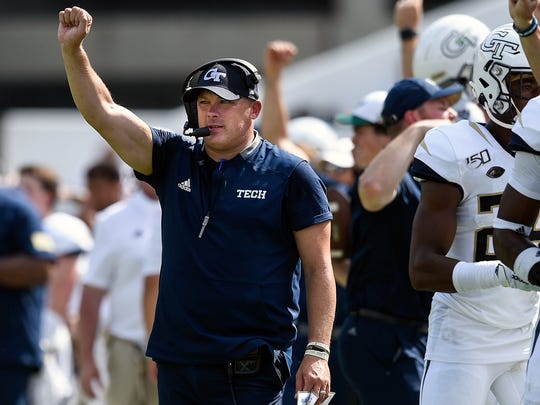Opinion: Murder of George Floyd changed the conversation for college sports

As outrage boiled across the country one year ago following the murder of George Floyd at the hands of former Minneapolis police officer Derek Chauvin, I spent an afternoon reaching out to people across college football with one question: Where were the coaches?
It had become clear pretty quickly that athletes were going to play a lead role in demanding that the entire country, not just Black America, invest in equality and understand the need to address police violence.
But even as protests were popping up across the country and many college athletes were publicly sharing their emotional turmoil, only a few coaches had even acknowledged the injustice that occurred on the afternoon of May 29 — the day Chauvin was arrested, four days after Floyd's death. Chauvin was later convicted for the murder of Floyd.
Perhaps the coaches' silence shouldn't have come as a surprise. Since the full integration of college football in the early 1970s, there has always been an unspoken tension between those who play the sport and the largely white fans who buy tickets and fund facilities with their donations.
This plays out in myriad ways across generations, from the backlash at Ole Miss banning the Confederate flag, to former President Donald Trump getting a standing ovation at the LSU-Clemson national championship game in New Orleans and earlier that season at Alabama, to the threatening emails from Texas boosters over the Longhorns’ Black players protesting “The Eyes of Texas,” a song that some believe has a racist origin.
In other words, the default mode for college sports — and particularly coaches — has long been to avoid saying anything meaningful about racial inequality or social justice that might invite backlash from white fans. Still, it wasn't entirely clear how deeply ingrained that mentality was until I started making some phone calls to people who work closely with coaches, asking them if they planned on making any public statements about Floyd.
The answer, initially, was no.
“You have to understand that many football programs have a lot of local police support,” said one person involved in those public messaging conversations, who spoke to USA TODAY Sports on the condition of anonymity because they were intended to be private. “They have bodyguards; they have stadium people. …These are such sensitive, polarizing issues. I think people were looking at it like it’s better to be judicious and make sure it’s fact-based.”
Source: Read Full Article

